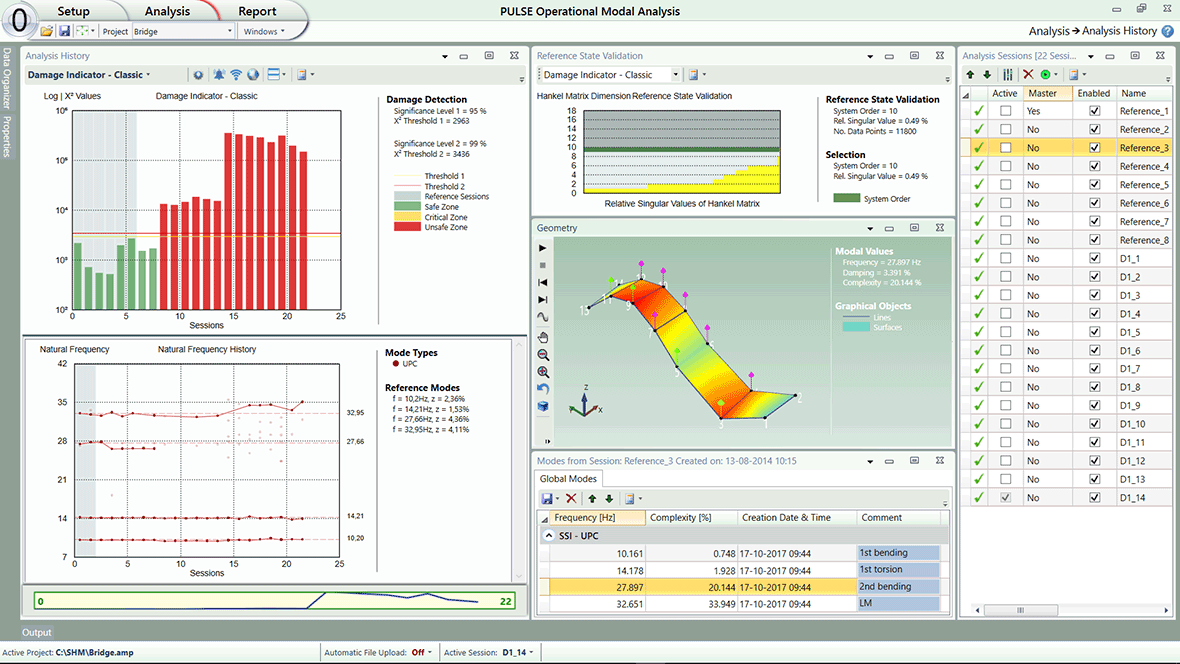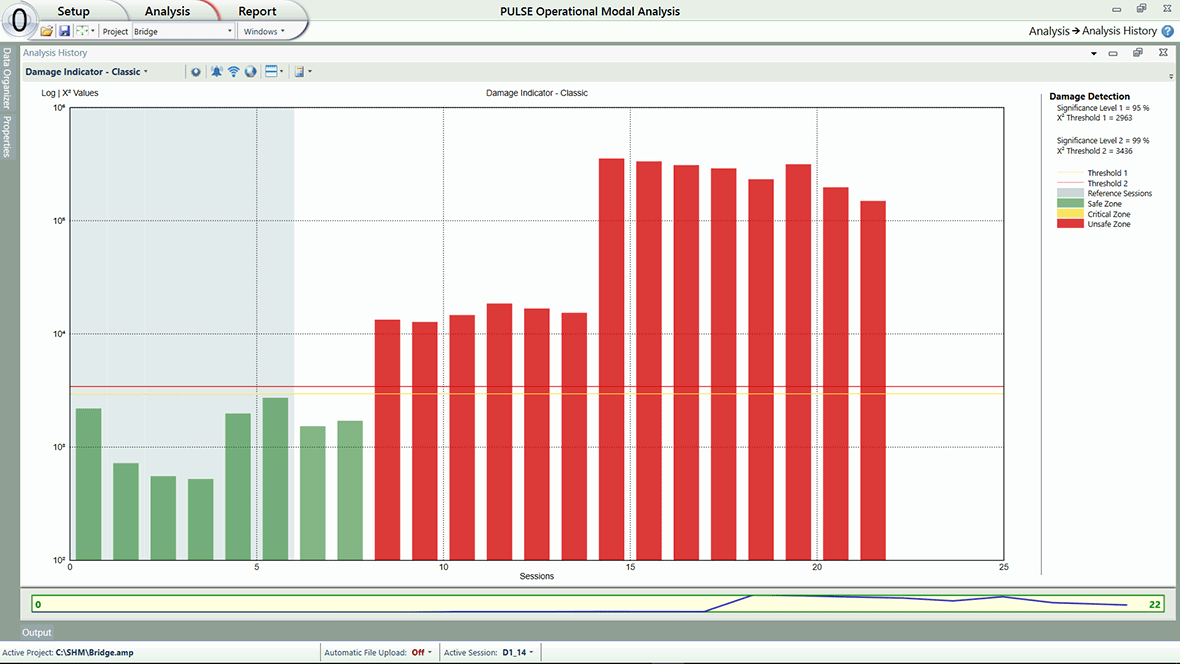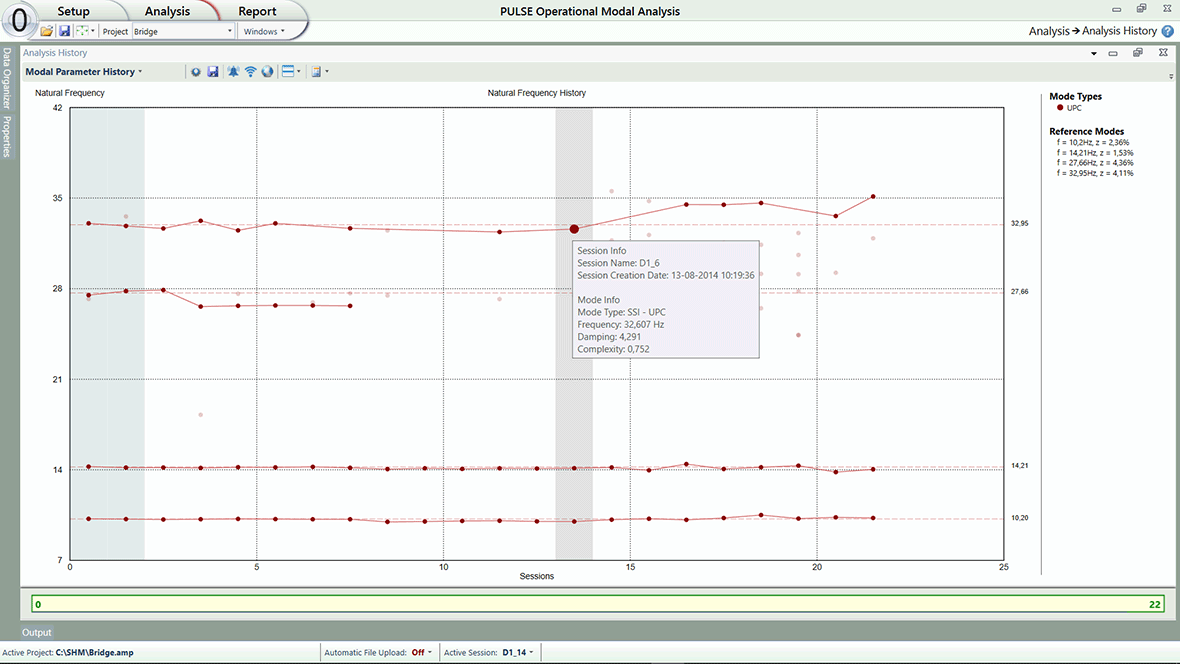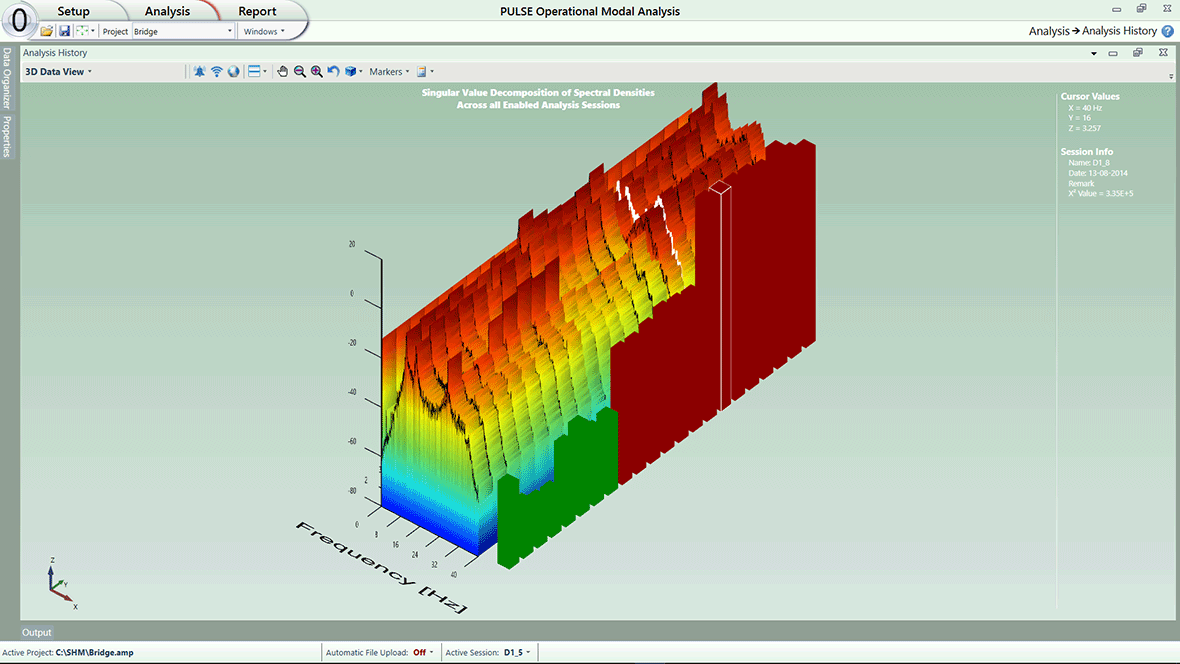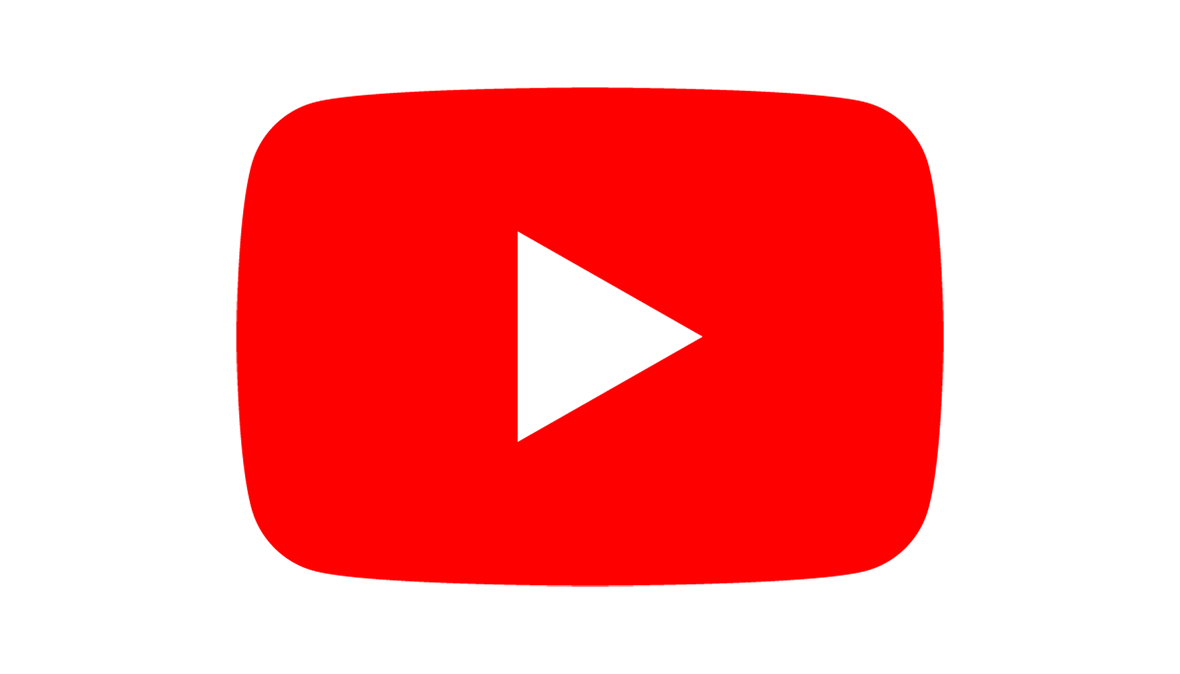BZ-8550 - BZ-8554
Structural Health Monitoring
Structures degrade over time due to usage, harsh environmental conditions and accidental events. Performing long-term, continuous structural health monitoring makes it possible to monitor a structure’s state and carry out condition-based maintenance to ensure structural integrity.
Angebot anfordernStructural Health Monitoring (SHM) modules BZ-8550 – BZ-8554 provide damage indicators, mode tracking, drift analysis and automatic file uploading and processing. Damage detection is done in the physical domain using state-space models to ensure robust and reliable damage predictions. This is different to the traditional approach of using detection in the reduced modal domain.
The benefits of SHM include:
- Catastrophic failure avoidance
- Customized structural inspections
- Optimized maintenance services
- Optimal use of structures
- Minimized downtime
- Extended lifetime of structures
Structural Health Monitoring modules BZ-8550 – BZ-8554 are available for OMA Pro Type 8762 and together they provide a completely integrated, accurate and flexible solution to ensure structures perform and can continue to perform as intended.
USE SCENARIOS
- Long-term continuous structural health monitoring of large civil engineering and mechanical structures to ensure structural integrity
- Timely indication of structural damage to determine required health management
- Automatic mode tracking (natural frequencies, damping ratios and mode shapes) as a function of analysis sessions to study mode changes due to damage
- Analysis of inter-story drift of high-rise buildings after seismic activity
- Using experienced gained from structural health monitoring to improve future designs. For example, obtaining reduction in aircraft weight without compromising structural integrity
CAPABILITIES
- Automatic upload and processing of measurement files from designated file folders
- Two statistical subspace-based damage detection indicators (classic and robust). Robust to changes in ambient conditions
- Control chart prediction for unification of damage indicators
- 3D data view for simultaneously displaying spectra and damage indicators as a function of analysis sessions
- Definition of event triggers and configuration of alerts to be sent as auditory and visual notifications, emails and web service posts

Abonnieren Sie unseren Newsletter zum Thema Schall und Schwingung

